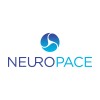
Effects of Recorded Music on Clinical and EEG Seizure Activity
EpilepsyThis research is being done to determine if Mozart music and/or age-appropriate music can reduce the frequency of seizures and epileptiform discharges.

A Pilot Study: Focused Ultrasound Thalamotomy for the Prevention of Secondary Generalization in...
Partial Seizures With Secondary GeneralizationThe purpose of this study is to assess the safety and feasibility of Magnetic Resonance Imaging-guided focused ultrasound (MRgFUS) in patients with epilepsy whose medicines are not working well. The ExAblate transcranial system is the name of the device that will be used to create and send ultrasound waves through the scalp and skull precisely to a small structure located in the center of the brain. This structure is known as the "Anterior Nucleus", and is an important region in the brain that may cause the seizures. Safety will be measured by recording and analyzing any adverse effects that may occur from the day of the experimental surgery through 12 months following the surgery.

Randomized, Double-Blind Study to Evaluate Efficacy and Safety of Cenobamate Adjunctive Therapy...
Primary Generalized EpilepsyThis trial is intended to study the safety and effectiveness of an new anti-epileptic drug (AED) on Primary Generalized Tonic-Clonic (PGTC) Seizures. Eligible Subjects, adults and adolescents, will continue to take their usual AEDs and receive either cenobamate or placebo. Subjects will have a 50% chance or receiving cenobamate or placebo (sugar pill). Subjects will initially receive 12.5 mg of cenobamate or placebo (study drug) and increase the dose every two weeks until they reach a target dose of 200 mg. Subjects will take study drug at approximately the same time in the morning (once a day) with or without food. If tolerability issues arise, dosing can be changed to evening. Also, once a subject reaches 200 mg, the dose can be decreased one time to 150 mg, if necessary. The treatment period is 22 weeks and there is a 3 week follow up period, which includes a one week decrease in study drug to 100 mg prior to stopping. The adolescent subjects will follow the same regimen in an oral suspension adolescent equivalent dose based on weight. Subjects who complete may be eligible for an extension study and will not have to complete the follow up period. Subjects will track their seizure types and frequency in a diary throughout the study.

Effects of Green Light Exposure on Epileptic Spikes in Patients With Refractory Epilepsy
EpilepsyEpilepsy IntractableThe purpose of this study is to obtain preliminary data in advance of a larger clinical trial aimed to test whether a single session of green light exposure can lead to a clinically significant reduction in epileptic spikes in patients with medically-refractory epilepsy. As this is a potentially fragile patient population, the study will test safety and tolerability as well as efficacy.

Epigenetics and Gut Microbiota in Children With Epilepsy
EpilepsyThe ketogenic diet is a high-fat, low-carbohydrate diet used in the treatment of epilepsy. The diet can be an efficient treatment option in children with drug resistant epilepsy, with more than 50 % seizure reduction in about 40- 70 % of the patients. However, there is still a lack of knowledge regarding the mechanisms of action, how will respond to the treatment and potential adverse effects.

RNS System RESPONSE Study
EpilepsyPartial Seizure3 moreTo demonstrate that the RNS System is safe and effective as an adjunctive therapy in individuals age 12 through 17 years with medically refractory partial onset epilepsy.

Fycompa in Catamenial Epilepsy
Catamenial EpilepsyThe purpose of the proposed investigation is to carry out a pilot study of add-on perampanel (Fycompa) in women with perimenstural (C1) catamenial epilepsy. Perampanel, a noncompetitive AMPA receptor antagonist, is uniquely positioned to decrease progesterone receptor mediated excitotoxicity. This mechanism of action would allow a novel use of perampanel as an effective treatment of C1 catamenial epilepsy.

Minimally Invasive Surgical Epilepsy Trial for Temporal Lobe Epilepsy
Temporal Lobe EpilepsyOpen Surgery1 moreTemporal lobe epilepsy (TLE) is a chronically neurological disease characterized by progressive seizures. TLE is the most frequent subtype of refractory focal epilepsy in adults. Epilepsy surgery has proven to be very efficient in TLE and superior to medical therapy in two randomized controlled trials. According to the previous experience, the investigators use functional anterior temporal lobectomy (FATL) via minicraniotomy for TLE. To date, this minimally invasive open surgery has been not reported. The investigators here present a protocol of a prospective trail which for the first time evaluates the outcomes of this new surgical therapy for TLE.

A Study of Lorcaserin as Adjunctive Treatment in Participants With Dravet Syndrome
EpilepsiesMyoclonicThe primary purpose of the study is to demonstrate that lorcaserin has superior efficacy compared to placebo on percent change in frequency of convulsive seizures per 28 days in participants with Dravet syndrome.

Exercise for Memory Rehabilitation in Epilepsy
EpilepsyGeneralized1 moreThe purpose of this study is to determine how effective a 6-week exercise program is for improving memory compared to a no-intervention control group, investigate the brain changes that may be responsible for memory improvements, and determine if the memory benefits and brain changes are retained 6 weeks after completing the exercise intervention in people with Idiopathic generalized epilepsy (IGE).
